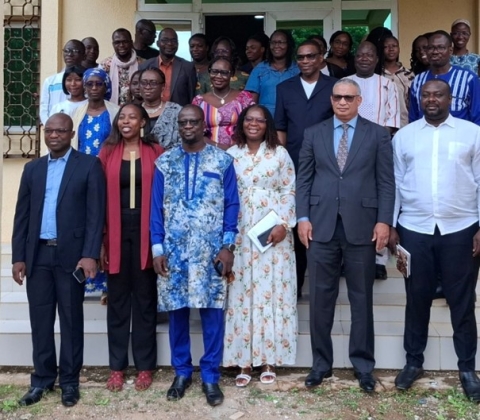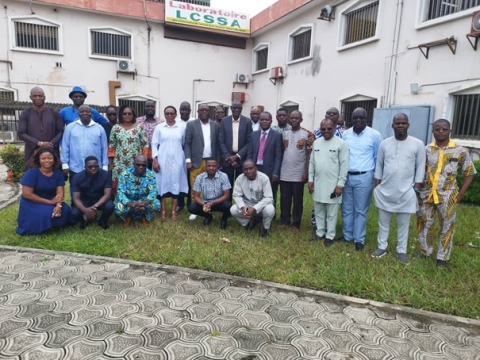
With a view to accelerating the development of the rice sector in West Africa while reducing rice imports, ECOWAS, in collaboration with the World Bank, conducted a learning visit to South Korea from 9 to 13 June 2025. The mission brought together key stakeholders from Ghana, Mali, Niger, Nigeria, Senegal, Sierra Leone and Togo, representatives of ECOWAS (Dr Maty Ba-Diao, Regional Coordinator of the FSRP and Dr Boladale Adebowale, Executive Secretary of the Rice Observatory), the Regional Agrhymet Centre and the World Bank (Dr Ashwini Sebastian, TTL of the FSRP) and Korean institutions. A total of 31 participants took part in the visit, including the Ghanaian Deputy Minister of Agriculture, Mr John Dumelo, and the Togolese Secretary General of the Ministry of Agriculture, Mr Madadozi Téziké.
The participants met the key players in the Korean rice ecosystem. In addition to exchange meetings and panels with senior officials from the host institutions, the delegation made field trips to Jeonju, Gimjae and Naju to visit the Rural Development Administration (RDA) and its technical institutions, the Green and Biological Science and Technology Institute (GBST), the Gimje Agricultural Technology Centre, the Korea Rural Economy Institute (KREI), the Korea Rural Community Corporation (KRC) and the Naju Agricultural Cooperative.
The visit was an opportunity to share knowledge, build capacity and co-develop best practice in rice production and processing in Seoul, Pangyo, Jeonju, Gimjae and Naju.
Rice plays a central role in the diets of West African populations, accounting for almost 40% of total cereal consumption, ahead of maize and wheat. However, the region is heavily dependent on imports, with a volume approaching 12 million metric tonnes a year, and a bill that reached 3.5 billion US dollars in 2021.
Against this worrying backdrop, due in part to low production, ECOWAS, through its Rice Observatory, is committed to reversing the trend. An ambitious roadmap has been drawn up to guide investment and action in the West African rice sector up to 2035. The mission to South Korea was part of this process of structural transformation, based on the experience of South Korea, which is a global benchmark for rice productivity and food security.
Over the course of a week, the ECOWAS/World Bank delegation was able to observe, learn and exchange views on public policies and modern technologies for growing, processing and preserving rice.
At the end of their visit to South Korea, the delegations from the West African countries identified several priorities inspired by the Korean experience to strengthen their rice sector. These can be summarised as follows: (i) integrating Korean best practice into national development strategies for the rice sector, with the emphasis on modernising irrigation, land management and mechanisation; (ii) promoting climate-smart agriculture and modernising processing infrastructure; (iii) developing appropriate support policies, to bring research closer to production and plan interventions on the basis of a precise diagnosis. Access to quality inputs and the adaptation of Korean innovations to local contexts were also deemed essential, as was the development of national strategies inspired by the K-Rice Belt model.
To implement the knowledge acquired in South Korea, the countries have undertaken to organise a virtual meeting to disseminate the conclusions of the mission and to follow up their implementation with the main players in the rice sector in FSRP member and non-member countries. The launch of joint pilot projects and the implementation of capacity-building programmes are also planned by the countries.
ECOWAS has undertaken to monitor the implementation of the actions identified at regional level.
"We are leaving with concrete ideas that can be adapted and implemented in our respective countries. The Korean experience inspires us and shows us that with a strategic vision, targeted investments and effective regional coordination, rice self-sufficiency is within our reach", said Ghana's Deputy Minister of Agriculture at the end of the visit.
This learning mission marks a key step towards building sustainable and resilient rice policies in West Africa. It illustrates ECOWAS' commitment to fostering the emergence of a competitive, profitable and inclusive rice sector, in the interests of food security, import reduction and the socio-economic development of member states.







